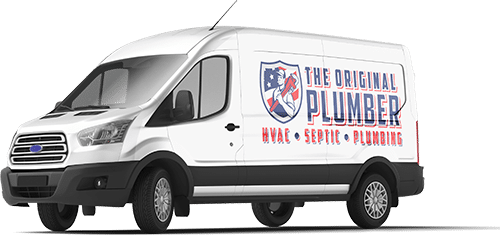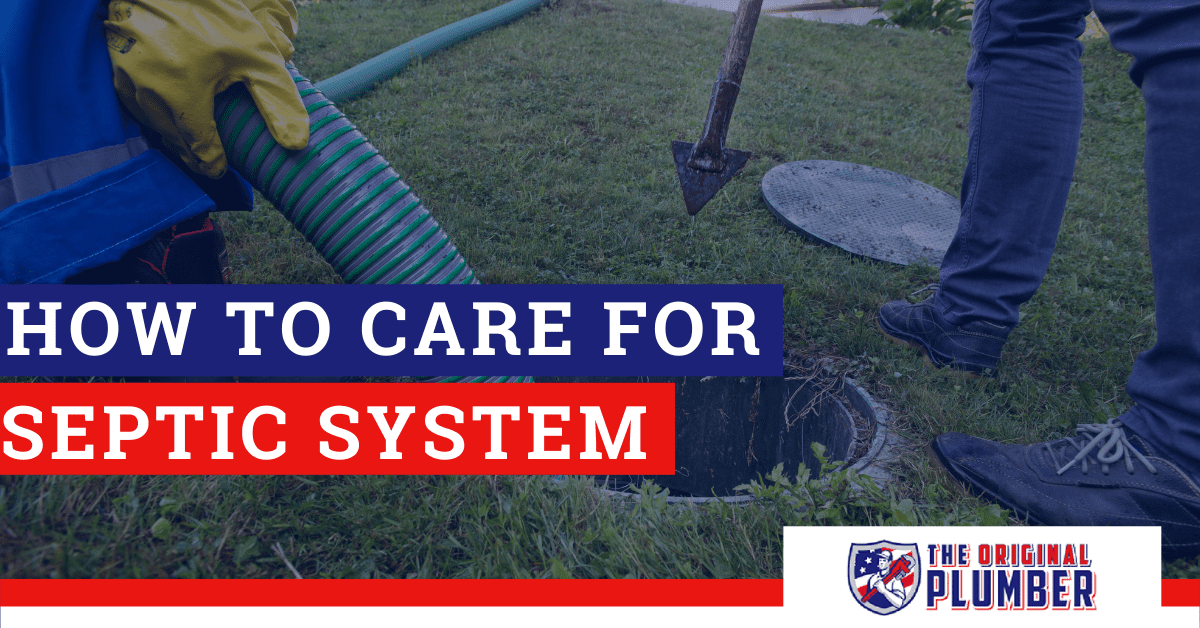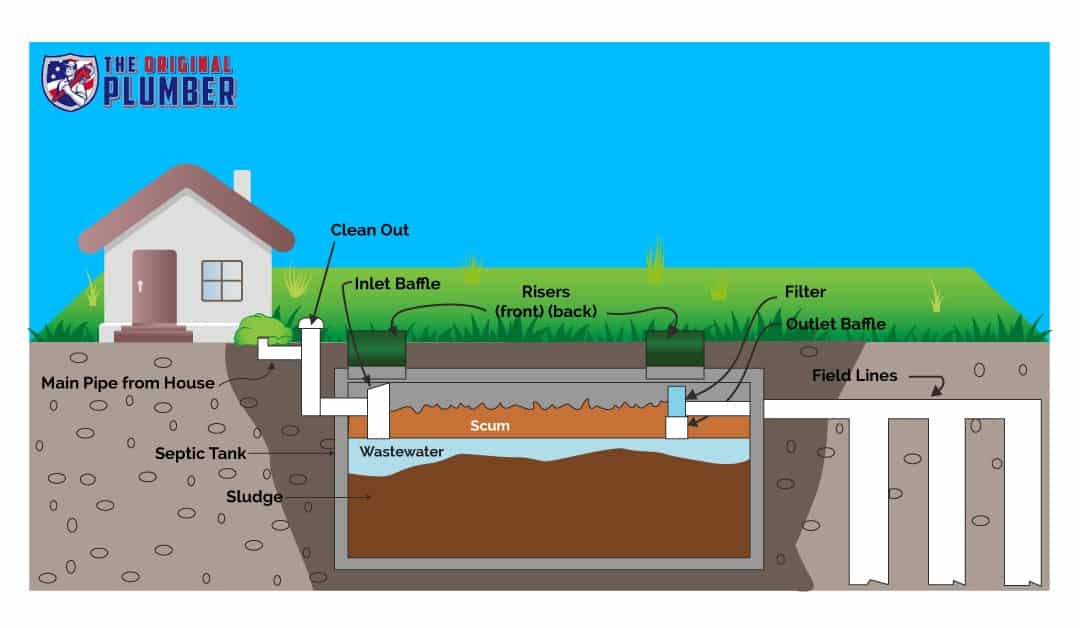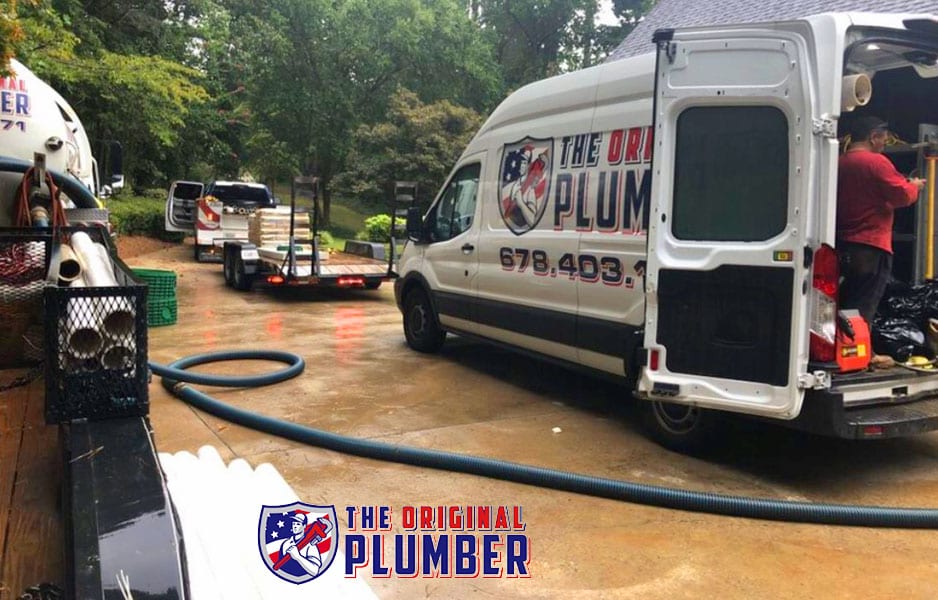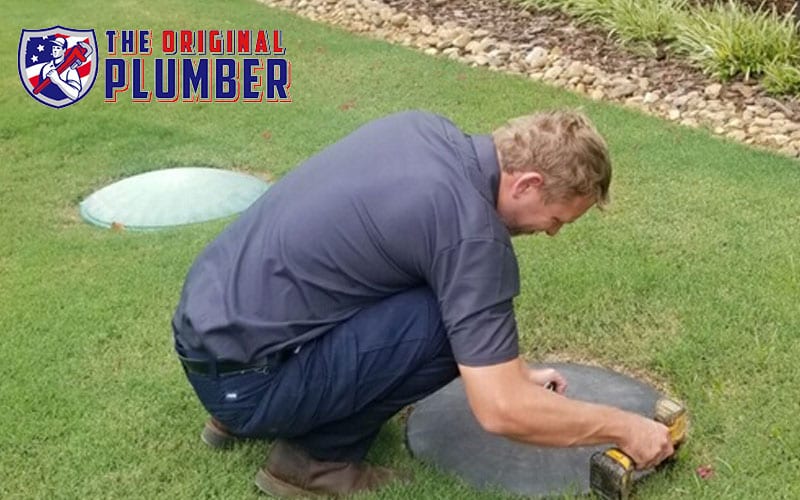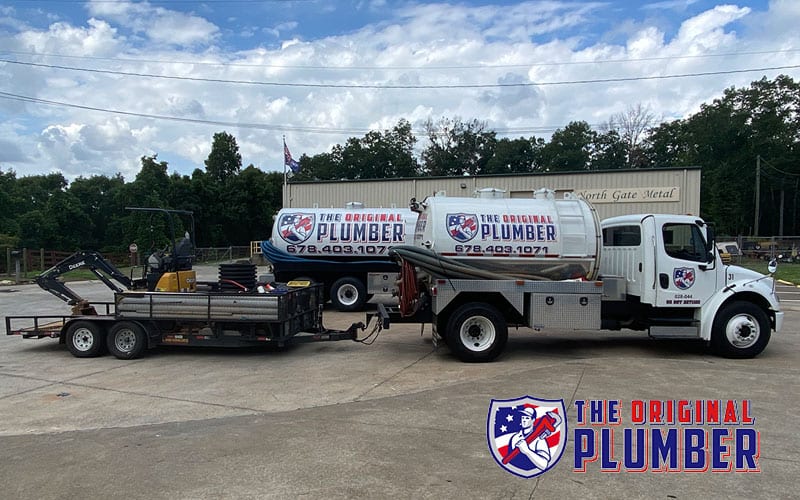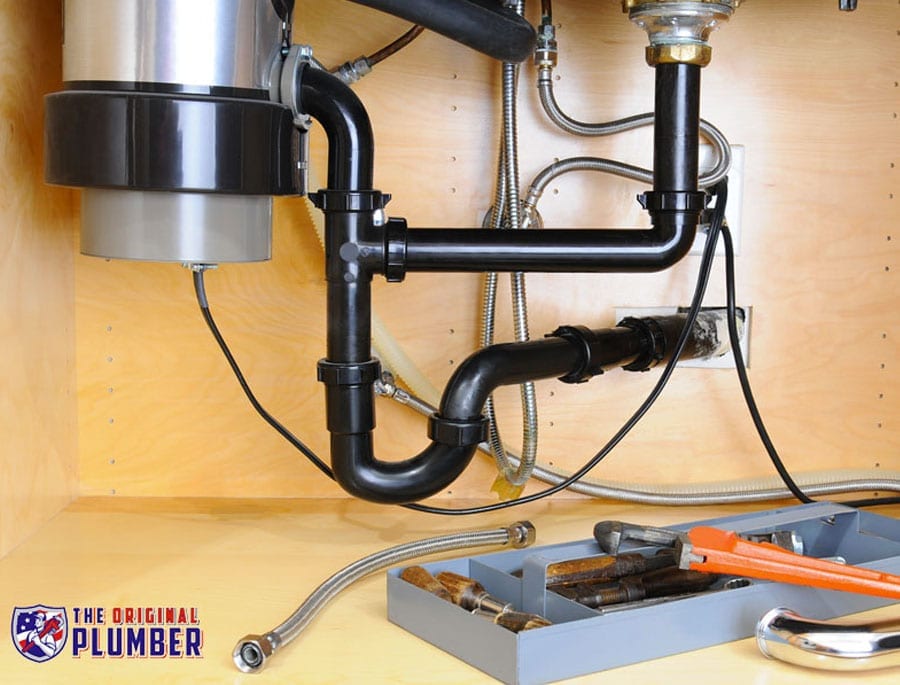If you’ve grown up with household septic tanks your entire life or you’re new to septic tank life, it’s important to learn how to care for your septic system. Because it’s out of sight, it’s often out of mind – until there’s a problem.
Learning about your septic tank is just one of the many things you can do to help keep your entire septic system working properly for years to come. These five tips will help you get started with keeping your septic system up and running.
Septic System Basics
The first (and probably most important) part of taking care of your septic tank is knowing how your septic system works and how to take care of your septic system.
Septic systems are made up of two main parts: the septic tank and the drain field or leach field. Your home is connected to the septic tank through the plumbing. Each time you put something down your kitchen sink, bathroom sink, tub, shower, washing machine, garbage disposal, or any other drain in your house, it flows into the septic tank buried in your yard.
Once the household water waste reaches the septic tank, bacteria get to work breaking down any of the solids that sink to the bottom of the tank. This is often called the sludge layer inside your tank.
The top layer of your septic tank is made up of lighter solids like soap scum and grease that get washed down the drain. These still need to be broken down a bit before leaving the septic tank but it doesn’t take as long as solids in the sludge layer.
In between those two layers of sludge and scum is where the liquid stays inside your septic tank. The liquid leaves your septic tank through drain pipes that have small holes in them to allow the water to drain out into the drain field to be absorbed into the soil.
The average household septic system is based on the size of your home when the septic system was installed. If you do major renovations to your home to increase the square footage (especially if you’re adding additional bathrooms), you may need to add an additional septic tank or replace the existing one with something larger.
Location Matters
Whether you’re putting in a new septic system or making plans for a remodel of your septic system or home, the location of your septic tank and drain field matter for many different reasons.
Property Usage
Your septic tank needs to be placed in a location where it really won’t be bothered too much. To keep the tank and pipes from cracking, avoid driving vehicles or heavy equipment over your septic tank. Having large animals like cattle continually walk over it can also be damaging.
Landscaping
Keep in mind the location of your septic system as you’re doing landscaping and as you plant trees. Even small tree roots can get into the pipes and cause cracks and damage that you might not know about until it’s too late.
Having your septic system in a location that’s easily accessible for maintenance and repairs can also be very helpful when it comes to inspections and having your septic tank pumped.
Drainfield
Knowing the location of your drain field for your septic tank is helpful. Diverting other runoff water away from your drain field will help to keep water properly flowing out of your septic tank because the ground isn’t overly saturated. Look at rainwater drainage systems if you live in an area that receives a lot of rainfall to help keep that water out of your drain field.
Keep the drain field location in mind when you’re emptying things like a hot tub or pool. Do not ever drain hots tubs near a drainage system. Adding that much water to the soil will make it very hard for the water to be able to flow out of your septic tank.
More Isn’t Better
It might sound like a great idea to tackle all your chores one day of the week, but it can really disrupt your septic system. Your septic system is set up to handle average indoor water use for the square footage of your house. Running your washing machine to do all of your laundries on one day of the week when you have a septic system can overwhelm your septic tank.
Because your septic tank needs a level of healthy bacteria to function properly, adding all that water to it all at once can really have a negative effect on the bacteria living in your septic tank. Washing machines can add a lot of water into your septic tank and wash away the good bacteria living in the tank.
Spread Out Laundry and Dishes
To help avoid this problem, spread out washing clothes and doing your dishes over several days instead of all at once. Limiting the amount of water and chemicals going into your septic tank can help keep it healthy and working properly.
Conserve Water
It’s not just the washing machine and doing dishes that can overwhelm your septic system. Everyone in your household taking a shower or bath can use a lot of water as well. Using shower flow restrictors or high-efficiency showerheads can help with the water flow and amount of water used during showers.
Monitor Water Usage
Even when you’re not running faucets, you still might be using water that you’re not meaning to. Here are some things you can do to help make sure you’re not using too much water:
- Check to make sure faucets aren’t leaking both inside and outside of your house or that you don’t have a running toilet.
- Turn off the water when you’re washing dishes or brushing your teeth to keep the excess water from going down the drain.
- Make the most of your loads of laundry and dishes. Don’t overfill your washing machine or dishwasher, but running them with lots of empty space can add a lot of wasted water to your septic system. You can also adjust the load size to help save water if you need to do a load of laundry or dishes.
It’s Not a Trash Can
What you put down your drains matters. Everything you put down any of the drains in your home winds up in your septic tank. The only things that should go down your drains are things that naturally come out of your body and septic-specific toilet paper.
Things that should never go down the drain and can cause a lot of damage to your septic system:
- Cooking grease
- Feminine hygiene products
- Coffee grounds
- Cigarette butts
- Paper towels
- Paint
- Cooking oils or fats
- Eggshells
- Medications
- Hair
- Cat litter
- Baby wipes
- Diapers
Not only will these things not break down normally in your septic tank, but they can also cause damage to your drain pipes. It doesn’t take much of any of these things to cause a clog inside your pipes.
Even if your house has a garbage disposal, it’s important to limit the number of things you put down the disposal. Using your garbage disposal to break things up before washing them down the drain can help the breakdown process once they reach your septic tank, but too many solids can overwhelm the bacteria living in your tank.
Pick the Right Products
When you have a septic tank, using the right products for your septic system makes a big difference. Did you know that there are products specifically designed to be used with septic systems?
Look at these products when you have a septic system:
Toilet paper
Choose toilet paper made for septic systems. It is designed to break down easier with the bacteria living in your septic tank. Stay away from toilet paper that is quilted or has additives like lotion that can make it harder to break down.
Cleaners
Whenever you’re cleaning, try to use natural options when available. Adding unnecessary harsh chemicals to your septic tank can have a lasting impact on your entire septic system. Avoid using any cleaning products that have bleach in them because they can kill the bacteria living in your septic tank.
Drain cleaners (Chemical drain openers)
Unclogging your drains might seem like an easy fix with some Drano or other cleaners, but if you’ve got a septic system, you might want to call a professional plumber to help with that clog.
Antibacterial Soaps
They are popular, but they also remove the bacteria from your septic system while removing it from your hands and body. Opt for using a regular soap for handwashing and washing your body.
Service Your Septic System
Keep regular inspections of your septic tank system on your schedule. Even when everything seems fine, don’t put off that routine maintenance. Just because everything looks fine from the outside doesn’t mean that there’s not a problem you don’t know about happening underground. Some systems have mechanical components, pumps, or electrical float switches. These need to be inspected regularly to keep the system functioning properly.
Because you can’t just check out your septic system yourself, it’s important to develop a relationship with a local plumber who has experience with septic. A septic service provider can thoroughly inspect your system with a camera that’s safe to be put into your drains to check for leaks, cracks, or other damage.
Your records and the relationship between you and your plumbing service provider will be helpful when you have a clogged drain or pipe because you’ll know when your system was last inspected and any problems. The plumber will also be familiar with your septic system and may be able to offer solutions and suggestions before having to come out to your home.
Having your septic tank pumped when recommended is also an important part of keeping your septic tank working well. Be sure to keep accurate maintenance records of the services done in case you need to replace your system or sell your home.
Feed It Well
In order to properly break down the solids in your septic tank, make sure that you’re feeding the bacteria in your septic tank. You’ve probably seen the ads for monthly pouches of bacteria to add to your toilet bowl then flush to add to your tank. Or maybe you’ve read about putting some rotten tomatoes down your garbage disposal to help encourage bacteria growth.
Chances are, you don’t need to do any of these things if you’re not putting a bunch of things down your drains that you shouldn’t be. Talk with your plumber to see if you need any additives for your septic tank.
Install a Screen
Sump pumps will help to remove liquid waste from septic tanks when the water reaches a certain level inside the tank. On your sump pump, you can install a pump screen to help reduce solids flowing into the drain pipes to prevent clogs.
Find a Trusted Septic Tank Expert
Call The Original Plumber & Septic today for a free consultation for any of your septic tank needs. We’re available 7 days a week to help with all of your septic and plumbing needs for your home or business. One of our friendly and professional team members will be able to answer your questions. We offer a wide range of services for septic, including septic tank pumping.
Your septic service professional will go over your septic system with you so you can learn about the normal sludge and scum levels for your septic system, when you should have your system pumped, and even where it’s located if you’re not sure about that.
